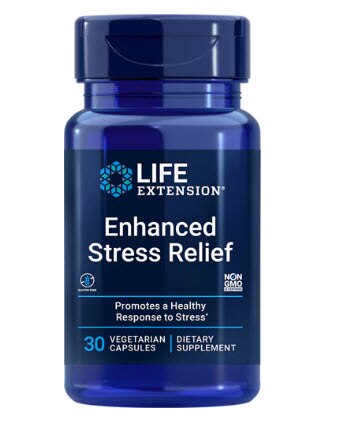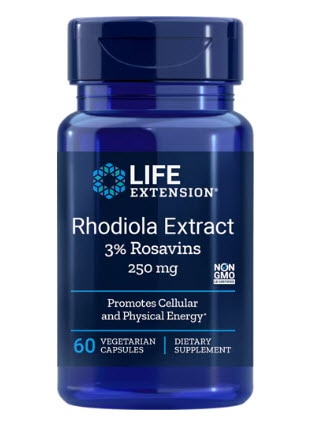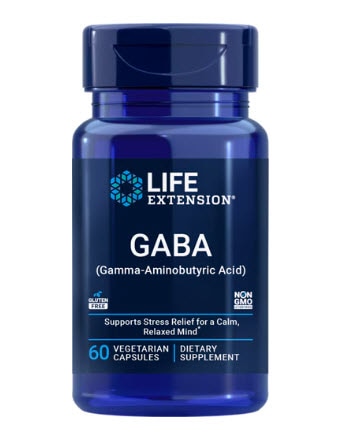It’s nearly impossible to go through life without a little stress—whether it’s traffic, a looming work deadline or that argument you had with your neighbor replaying in your head. (Or, possibly, all of the above!)
And while it’s perfectly normal to get a little wound up when you hit these bumps in the road, it’s important to make sure you don’t let the pressure go unchecked for too long. Even though stress is inevitable, how you handle it can make a huge difference when it comes to lasting mental health, and with it, overall well-being.
We’ve got the lowdown on what exactly stress is and how it affects the body, supplements to support a healthy stress response and tips and lifestyle recommendations for keeping calm and carrying on!
What is stress?
Stress is our body’s natural response to stressors, or challenges, that cause us to feel worried, physically tense or both. These stressors can vary dramatically from person to person. For some, it’s presenting in front of an audience or meeting new people; for others, it’s a long to-do list or upcoming travel plans. And just to be clear, a little bit of stress isn’t strictly bad for you. It can serve as an effective motivator for helping you complete certain tasks or activities, or even nudge you out of your shell. And historically, it has served an evolutionary purpose, propelling us into action to avoid existential threats like predatory animals.
Unfortunately, the body can’t actually tell the difference whether a stressor comes from a real, physical threat or a perceived one, meaning that you may react physically regardless of the stressor.
Intellectually, you’re aware that it’s just a job interview—a tiger isn’t leaping at you! So why hasn’t your body gotten the memo? Let’s get into why.
What happens to the body when it’s stressed?
Stress jumpstarts the fight-or-flight response in the body, which involves a few things: hormone release, increased mental alertness and changes in heart rate. Let’s break it down a bit.
A small region in the brain called the hypothalamus communicates with your autonomic nervous system (the one that manages involuntary bodily responses like heart rate and breathing) to release adrenaline into your blood.
When adrenaline is released, more oxygen and blood circulate to the muscles and heart, supplying a burst of energy. You might notice that you’re more alert (all the better for confronting challenges).
Continued stress also means the release of cortisol, a hormone that helps slow down certain systems in the body so you can focus solely on your stress response.
Once the stress has passed, your hormones will return to the levels they were previously at.
Quick calming techniques when you’re feeling worried
Now that you have a better understanding about how stress can impact the mind and body, here are a few quick tips for weathering the emotional storm when it comes your way and you need to quickly calm down:
- Meditation—When you’re stressed, your thoughts may be moving a thousand miles a minute. That’s where meditation comes in. By definition, meditation is the practice of training your mind to focus and redirect your thoughts.
Better yet, it’s easy to do and you can do it right away! Find a quiet and comfortable space, close your eyes, and try to pay attention to the present moment. Focus on your breath and allow your mind to calm itself. If you’re looking for guided meditation, a yoga class is a great option.
- Prioritize your most pressing tasks—If the source of your stress is an upcoming deadline or event, organize what needs to get done into manageable to-do lists. This way you can physically see what you need to get done. Plus, crossing off tasks can feel like a real win on a busy day!
- Call a friend or trusted confidante—If you’re feeling overwhelmed, checking in with someone you trust can be a great way to offload your feelings and get an outsider’s perspective.
- Practice grounding exercises—Similar to meditation, grounding exercises force you to focus on the world around you. Common exercises include physical cues, like pressing your feet into the floor or slowly stretching your arms.
- Get moving—Even getting out of your chair and stretching can help relieve some of the immediate thoughts that are on your mind.
While nothing is going to be a magic bullet for making your worries fall away, these tactics can help calm your mind, and in turn, help you better manage your overall stress.
What are the best stress relief supplements?
So you’ve got your stress relief tactics down, but worries are still on your mind. Here are some of our favorite supplements for supporting a healthy mood and better managing your stress.
- GABA—Gamma-aminobutyric acid, also known as GABA, is considered gold star support when it comes to relieving occasional stress quickly. This amino acid promotes a relaxed state of mind, especially in the face of events like medical appointments, public speaking or preparing for a trip. It serves as the brain’s primary inhibitory neurotransmitter, playing an important role in brain cell communications so you don’t get overwhelmed. Better yet, GABA can even promote a healthy stress response in as little as 30 minutes.
- Ashwagandha—If the effects of everyday stress are impacting your daily life, look no further than ashwagandha. Used in stress relief health regimens for centuries, this herb has been well-studied to benefit your emotional well-being and support healthy levels of cortisol.
Pro tip: If you really want to take your productivity to the next level, try an ashwagandha supplement with spearmint extract for that extra boost in focus. - L-theanine and lemon balm—No time for a calming cup of tea? Try supplementing with L-theanine and lemon balm instead. These extracts work together to help fight the physiological effects of stress on the body and encourage a calming effect that’s similar to what happens in the brain during meditation.
- Rhodiola—Rhodiola is an adaptogen, which means it can help modulate your body’s stress response. The compound not only can help support your ability to respond to the stress of everyday life, but it also positively supports cellular energy, so you can tackle anything that comes your way.
- Magnesium—Magnesium acetyl taurinate is a specific form of magnesium that works with your brain to support a healthy stress response. Studies show it promotes healthy neurotransmitter activity and encourages feelings of calm and relaxation so you can take it easy, no matter what life throws at you.
What else can I do to manage my daily stress?
A healthy lifestyle goes a long way in making sure you keep your mental health well-managed. Not only will these tips below help you with everyday stressors, they are also mainstays of optimal physical health (so, one less thing to worry about)!
- Avoid smoking and drinking—Engaging in regular alcohol and nicotine consumption leads to changes in the brain and can impact your physical and emotional well-being. Consume alcohol in moderation (or not at all) and avoid smoking altogether to stay at your best.
- Keep your nutrition in check—The saying “you are what you eat” rings true—especially when it comes to stress! Sugary, fat-laden foods make it harder to maintain a sense of calm. Instead, choose foods that can play a role in managing stress, such as ones that are rich in antioxidants and omega-3s (like fish, leafy greens and blueberries).
- Get enough sleep—Sleep is necessary to keeping stress at bay. It gives your mind time to rest and recover after a long day. However, poor sleep hygiene can wreak havoc on your mental health. Make sure you have a consistent routine every single night, avoid large meals and caffeine late at night, minimize electronic use at least 30 minutes before you go to sleep and get between 7-9 hours of shut-eye every single night.
- Prioritize regular exercise—Movement is an essential part of keeping your mood up and your stress down. Aim for at least 150 minutes per week of moderate-intensity aerobic activity or 75 minutes per week of vigorous aerobic activity to keep your stress under control.
Mental and physical health are inextricably linked. And the better you take care of your body, the better you take care of your mind. Keep this checklist on hand the next time you experience stress and you’ll be well on your way to feeling your best every day.
Featured Products



The post Stress Relief 101: Calming Techniques, Supplements and Lifestyle Tips first appeared on The Upside by Vitacost.com.

